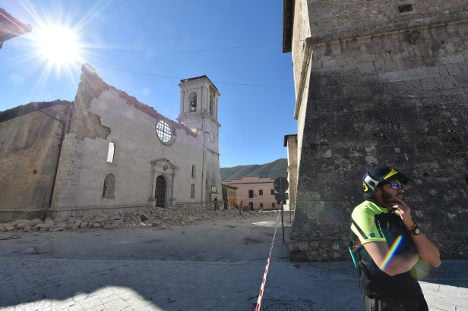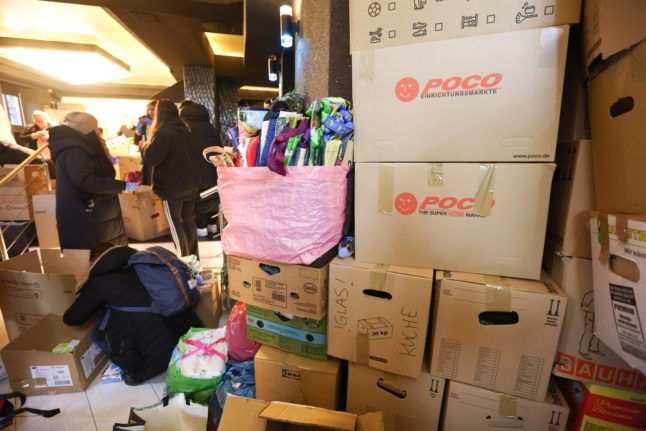It was the most powerful quake to strike Italy in 36 years, leaving thousands homeless and flattening the walled town’s 600-year-old Basilica of Saint Benedict and several other churches.
Miraculously, nobody died, mainly owing to the fact that many had fled their homes following a 6.2 magnitude tremor which struck nearby two months earlier, killing almost 300 people, the majority in the Lazio town of Amatrice.
A quake had also hit a few days earlier, badly damaging the nearby villages of Visso and Ussita.
A series of events are planned on Monday and over the next few days to commemorate the anniversary.
Just a handful of shops and restaurants have reopened in Norcia as leaders strive to attract visitors to return to an area that’s famous for its food and Sibillini mountain range. Norcia used to have a population of around 4,000, but only a few hundred remain.
Reconstruction of the towns affected by the 2016 series of earthquakes has been severely delayed by stifling red tape, with thousands of people still living in hotels or prefab houses.
Meanwhile, less than 10 percent of the 4,000 tonnes of rubble littering the 140 hamlets, towns and cities affected has been cleared, with anti-corruption controls slowing work on the ground.
Much of Italy's land mass and some of its surrounding waters are prone to seismic activity with the highest risk concentrated along its mountainous central spine.
Italy straddles the Eurasian and African tectonic plates, making it vulnerable to seismic activity when they move.
A relatively small 4.0-magnitude quake in August was enough to topple several houses on the island of Ischia off Naples, killing two people. Geologists have insisted that a tremor of that level would not be lethal if homes had been built properly.



 Please whitelist us to continue reading.
Please whitelist us to continue reading.